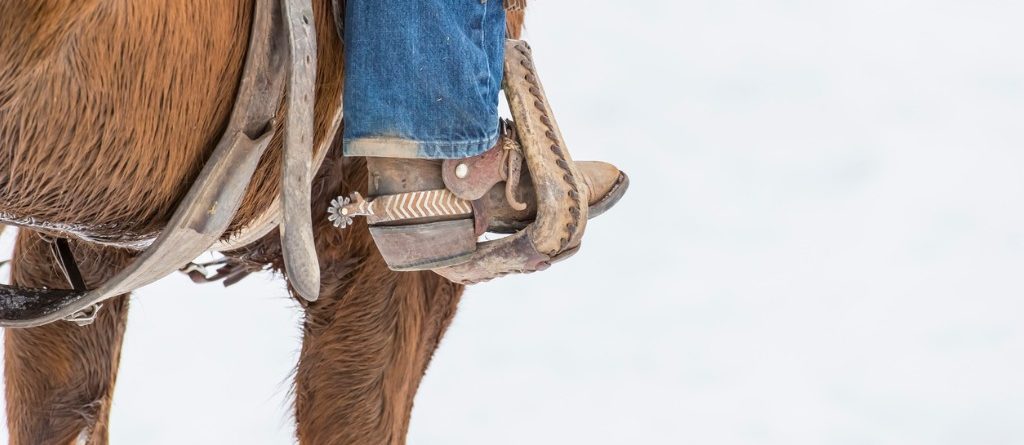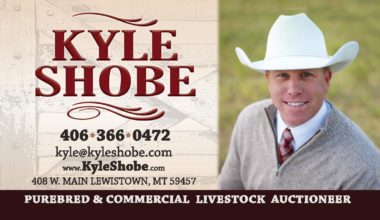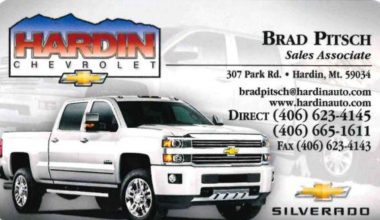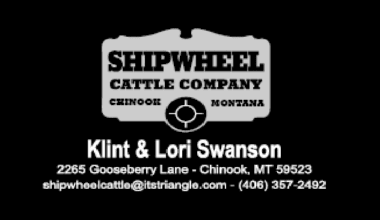Heather Smith Thomase for Tri-State Livestock News
(Includes, Interview with Bill Pelton, MT BQA Program Coordinator)
October 9, 2018
Beef Quality Assurance (BQA) programs over the past few decades have helped educate beef producers about cattle handling techniques and injection protocol.
Producers take BQA certification classes to gain their BQA certification certificate. Shannon Williams, Lemhi County (Idaho) Extension Educator, says each state has its own BQA program and state coordinator.
“Ranchers can check with their state coordinator for in-person training. They can also do online training; the national BQA program has an online process and recently updated it. Sometimes there is a $20 fee, but at certain times Zoetis sponsors that program and it is free. This program can be found at http://www.bqa.org and you can type in your state—which will give you contact information for your state coordinator. The certification is good for 3 years, and then you need to get recertified,” says Williams.
Most states honor the national online training, she said. “The class takes about 90 minutes, to get the BQA certification. Ranchers attend a workshop, then take a quiz, and sign the BQA contract afterward,” she explains.
There is some talk that packers may eventually require BQA certification, only buying cattle from producers who are certified. “Another thing that is currently talked about is the new transportation BQA. Some packers are requiring haulers/drivers to be certified. For this certification they go through a 3-hour program. We are working on hosting a couple of these programs through the University of Idaho. There is an online training for this one also—for producers and for the hauling companies with semis.”
The BQA programs are primarily funded through Beef Checkoff dollars but some states have a mix of funding. “Idaho Beef Council funds a big portion of our BQA workshops. We don’t charge anything for these classes. We find sponsorship money for a free workshop and meal, to encourage people to come!”
At this point BQA certification has been used by a few people as a marketing tool but not all producers take advantage of it, and there is no guaranteed financial incentive. “We can’t say that you’ll get a premium on your cattle if you are certified. There is no guaranteed financial incentive, but a buyer may not buy your calves the next year if they had problems or weren’t handled properly, or some end up with carcass blemishes.” If a buyer knows your cattle are healthy, calm and have quality carcasses, that buyer will want them again.
“BQA doesn’t guarantee that you’ll have healthy cattle, but guarantees that you know what to do, know how to handle cattle with low stress, and have done the best job possible,” says Williams.
“It also puts more beef on the table. When we toured the new processing plant near Kuna, Idaho, we saw some carcasses with big bruises, and areas they had to cut out some of the meat. This is lost profit for that packing plant. As this trickles down, it takes money out of producers’ pockets,” she says. It’s better for the entire industry if we try to have the best product possible.
“I encourage everyone to take the training. You may be doing all the right things already, but to have the certification and utilize it when marketing your calves may be helpful,” says Williams.
Jack Holden, (Holden Herefords, Valier, Montana) says BQA is a great tool. “A lot of us practice these things anyway, but I think it’s important to be certified because it helps the industry. To go through it again and get recertified is always a good reminder of all the things we should be doing. We always want to keep in mind our goal to have a quality end product for the consumer. All the issues BQA covers helps ensure quality beef—proper antibiotic use, proper injection sites and techniques, low-stress cattle handling, etc.–the whole picture of what we should be doing. As an industry, the better picture we can present to consumers, the more it helps us all,” he says.
“There are always live classes available at various meetings, such as the annual convention for the Montana Stockgrowers, the Cattlemen’s College, etc. Bill Pelton, Montana BQA Program Coordinator, also puts on other classes during the year for people who don’t feel comfortable doing it online,” he says. These in-person classes can be beneficial for a new employee or someone getting started in ranching. Some people might benefit a lot from a hands-on workshop for their first time, and then might keep up their recertification on-line.
“Every year when we go to the NCBA annual convention there are live classes, and a person can take those to become certified, or recertified. The more producers who are certified just shows that we are trying to do things right. Some controversial issues, like antibiotic use, are not necessarily based on fact, but get brought up by people who worry about residues, or antibiotics in food animals,” says Holden. Having producers BQA certified is part of our message to the public that we are careful about antibiotics we use, withdrawal times, etc.
“If you go to Facebook and look at the Montana Beef Quality Assurance page, there’s a video we posted in early October. In the first 3 days it was there, it had more than 72,000 views. This video shows low-stress stockmanship techniques; we made the video when our neighbors were working their cattle. These people do a great job and I videoed while they were sorting 170 pairs in 15 minutes, with no stress on the cattle. They took calves away from the cows and sorted off some crippled cows and bulls at the same time, all very quietly,” says Pelton.
“When you watch this video you see cows walking by the people instead of running. It’s all in how you set it up. We brought the cattle into a holding pen, and they wanted to go back where they came from, which made it easy to sort them. If you just figure out what cows want to do, and make it seem like their idea, cattle sorting is very simple,” he explains. Here is the link to the video: https://youtu.be/HmRfkK36DM4
There has been some talk that packers may someday require BQA certification on cattle they buy. “There are already a few branded programs that require this, and we may see more of this in the future. There will certainly be more pressure from packers and on down the line, for cattle to come from certified producers. A person can hope for some kind of premium paid for cattle that are represented as coming from a BQA certified program, rather than discounts for the ones that aren’t! At any rate, it helps us all if cattlemen can follow BQA protocols and I think it helps if we keep up our certification.”
Katie Rein, DVM (Crazy Mountain Veterinary Service, Harlowton, Montana), former president of the Montana Veterinarians Association, says it helps the beef industry produce a quality product for the consumer. “Over the years, since BQA was first implemented, we’ve had much fewer injection-site lesions. Even if producers don’t get recertified all the time, at least they think about BQA protocols, and most people follow these—in terms of giving all injections in the neck, thinking about proper use of antibiotics and withdrawal intervals, low-stress handling, etc. Even if they are not certified, I think most people keep these things in mind, she says.
There has been a good educational push regarding BQA, and most ranchers are aware of the basic principles. “I was certified in the past and I think my certification has expired by now, but these are things I just do automatically because I know what they are. As a veterinarian, I process about 50,000 cows a year (preg-checking, Bangs vaccinations, etc.) and also see a lot of injections being given,” says Rein. She feels that following the BQA guidelines is very important.







